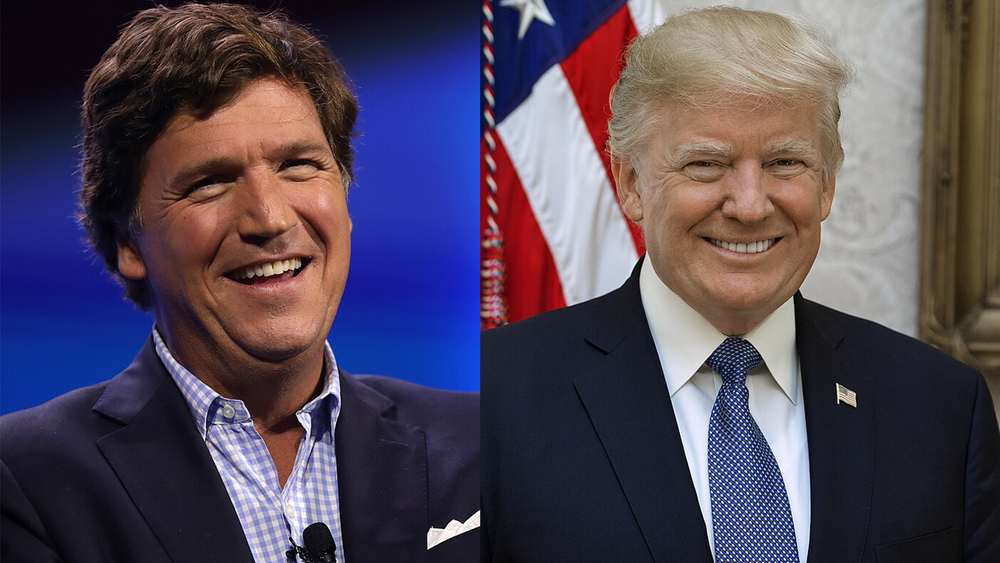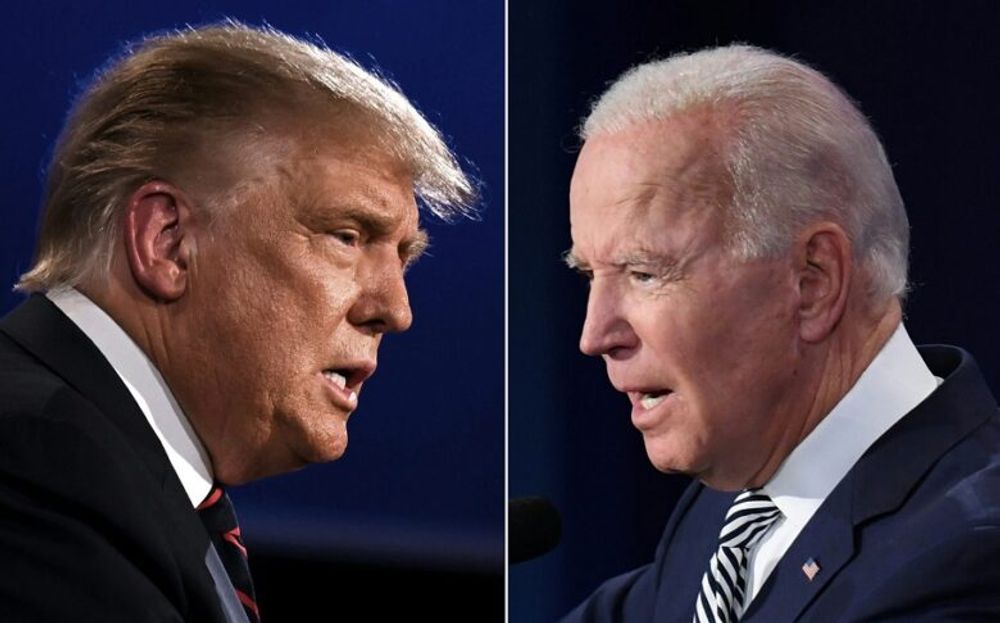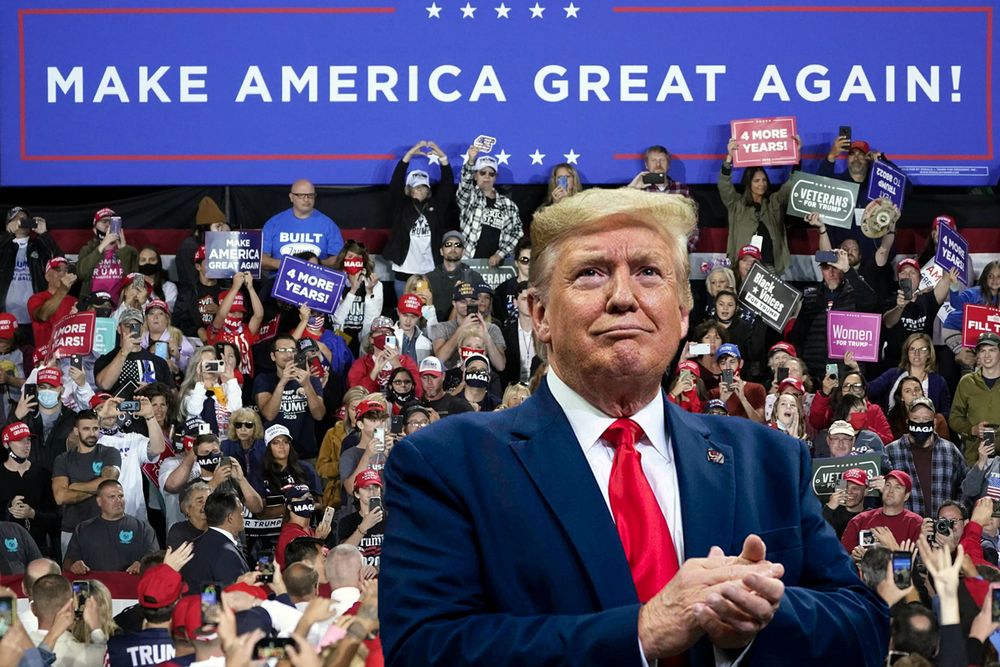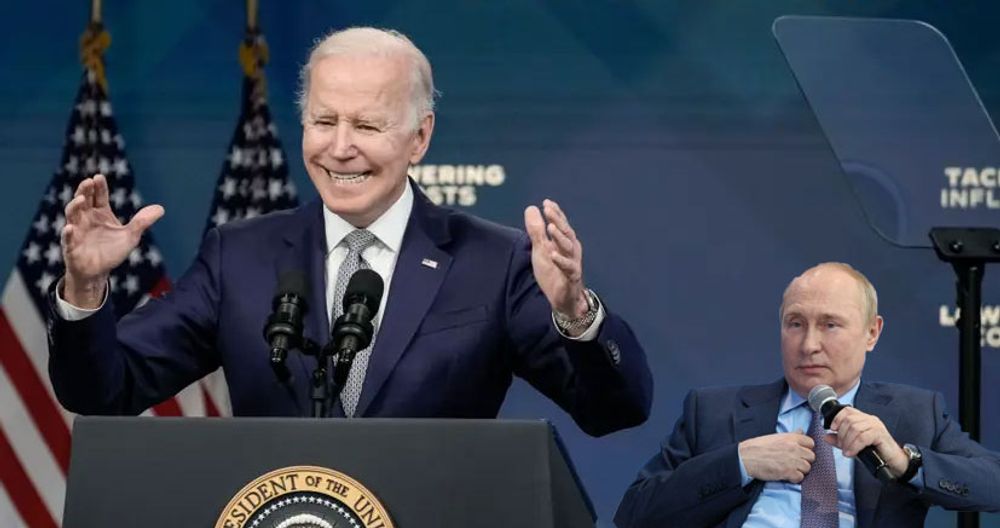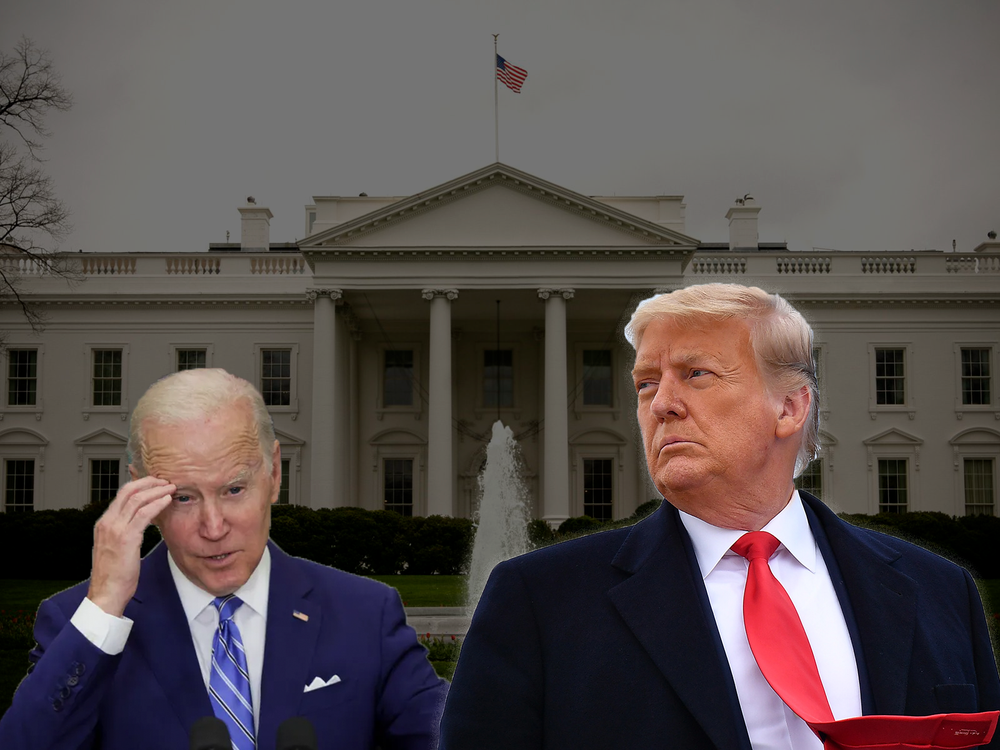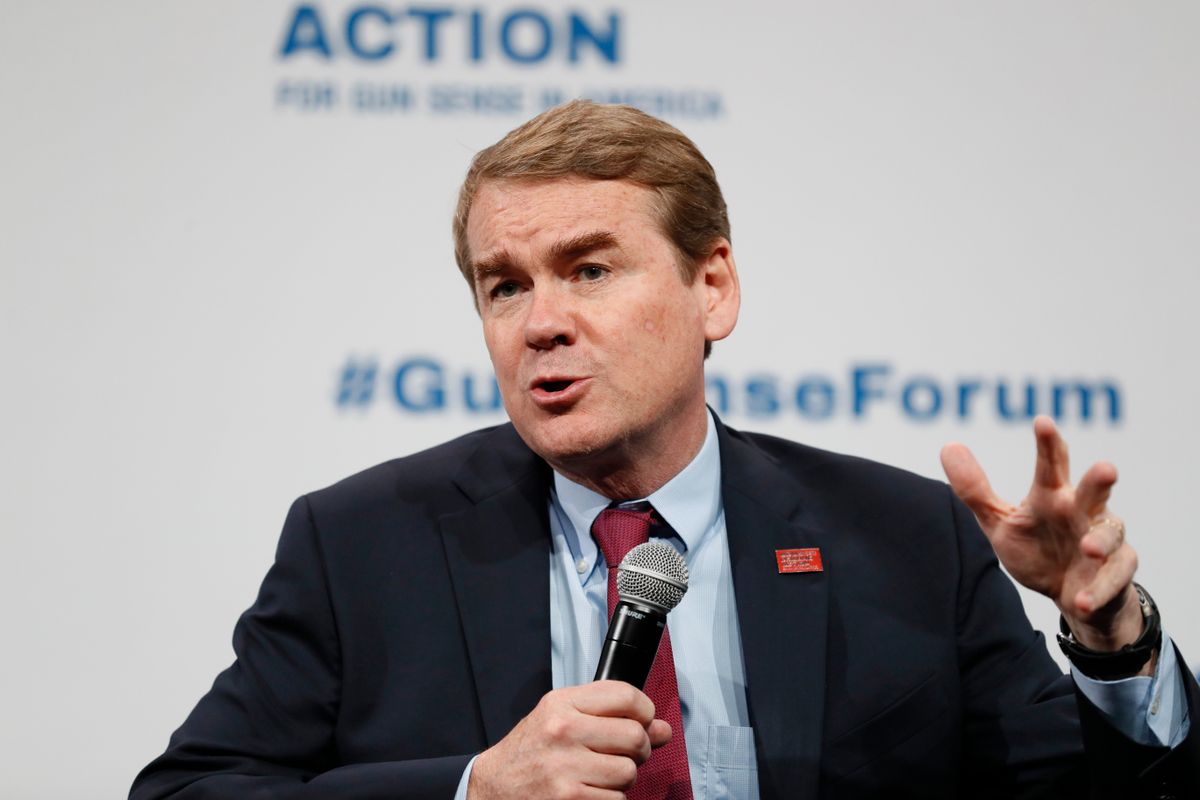
Michael Bennet Banking on Moderation in Age of Trump
Michael Bennet was about as fired up as he ever gets at the Iowa State Fair's Political Soapbox, railing against Bernie Sanders' health care plan — but politely.
"I respect him because he tells the truth about what's in his plan, but I disagree that that's gonna get us universal health care in America," said Bennet, a Colorado senator and decidedly lower tier Democratic presidential candidate.
He prompted boos from the crowd, most of whom were waiting in the heat to see Sanders speak shortly after him, but Bennet wasn't too fussed. As admirers thronged to the Vermont senator, Bennet went on to tour the fair and hop aboard a few rides with his daughters.
Bennet is pursuing the presidency as the anti-Donald Trump: measured and moderate. Contemplative and competent. With the energy in the Democratic Party radiating from the left and the president so often shouting from the right, Bennet's journey has been a lonely road.
But he insists he won't change course.
"If we are forever trapped in a world of instantaneous celebrity that is driven by social media, it may be that I'm not the person for that time," he said in an interview. "But just like with many other things, I prefer not to think that we're living in a permanent state of a broken-down political system that won't deliver on all the promises these candidates are making."
Bennet's odds of winning the Democratic presidential nomination are as long as his thoughts are deep.
His new book is his version of an urgent call to arms to restore American democracy and no one's idea of a bestseller.
And yet, Bennet is tying his candidacy to perhaps the most audacious proposition of all, that voters may actually crave the opposite of the relentlessly turbulent tenure of Trump.
He made that pitch explicit in a tweet, pledging, "If you elect me president, I promise you won't have to think about me for 2 weeks at a time. I'll do my job watching out for North Korea and ending this trade war. So you can go raise your kids and live your lives."
James Carville, a top strategist on both Bill and Hillary Clinton's early presidential campaigns, is bullish on Bennet because he believes that "the way to beat Trump is to be as profoundly different from Trump as you can be."
"Just be nice, be calm, get out of everybody's face," he said. "If the country is looking for the most unlike Donald Trump person, I think Michael Bennet is that person."
Carville said he's spoken to other Democrats who believe Bennet would make the best president out of any candidate in the field. Carville said he would make an even better nominee than Joe Biden because "he'd be new, different, younger and … could project forward."
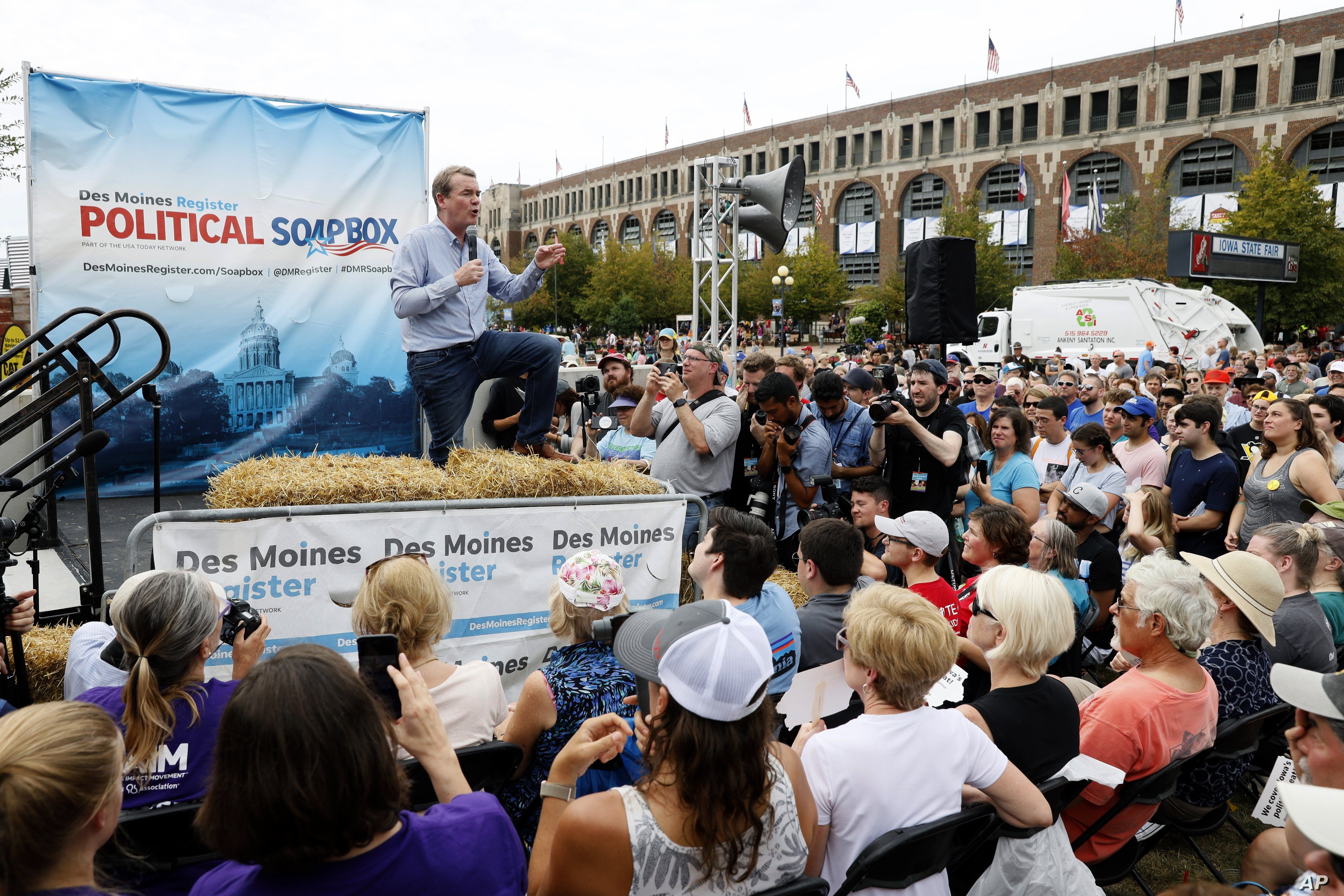
But before Bennet can even be taken seriously as the challenger to Trump, he must emerge from a field of two dozen other Democratic hopefuls, including a cluster that shares some version of his pragmatic approach, such as Montana Gov. Steve Bullock and Minnesota Sen. Amy Klobuchar. Many trees must fall before primary voters would see Bennet as their alternative.
He is at his most animated when he is assailing "Medicare for All," Sanders' signature policy proposal and one also embraced by Massachusetts Sen. Elizabeth Warren.
"I really believe that, better than the other people that are in this field, the agenda that I'm pursuing is an agenda that Democrats in Iowa and South Carolina, New Hampshire and Nevada will recognize themselves in," he said.
Indeed, some voters in Iowa do see an appeal in Bennet's calm.
"That's what I want — someone who's really steady, and he has a reputation for being really knowledgeable about policy," said Linda Simonton, a 71-year-old retiree from Des Moines, after seeing Bennet speak at the fair. "He knows what he's doing. He's worked in the Senate, he's worked on immigration, he's worked across the aisle."
And the Des Moines Register editorial board praised Bennet after sitting down with him, encouraging caucusgoers to give him "more attention."
"He offers a much-needed reality check on the promises candidates are offering and what it will take to accomplish meaningful change,'' the board wrote.
Bennet is Trump's opposite even in style. Compared to other candidates who shout or sermonize on the stump, Bennet tends toward monotone that can make his speeches sound like a well-intentioned lecture from someone's father. On the stump at the state fair, Bennet, who delayed his entrance into the race because he had prostate cancer, even joked to the crowd that they should get their prostates checked.
Asa Leonard, an 18-year-old art student who saw Bennet in Knoxville, Iowa, said he was "charmed" by the senator's style.
"He's very much a dad-jokey kind of guy, very nice and calm and open, and a little stern but not aggressively so," he said.
That style appeals to even some voters who identify as more progressive. Leonard, who said he favors South Bend, Indiana, Mayor Pete Buttigieg or Sanders to Bennet, said Bennet was "the most compelling person from the moderate policy lineup."
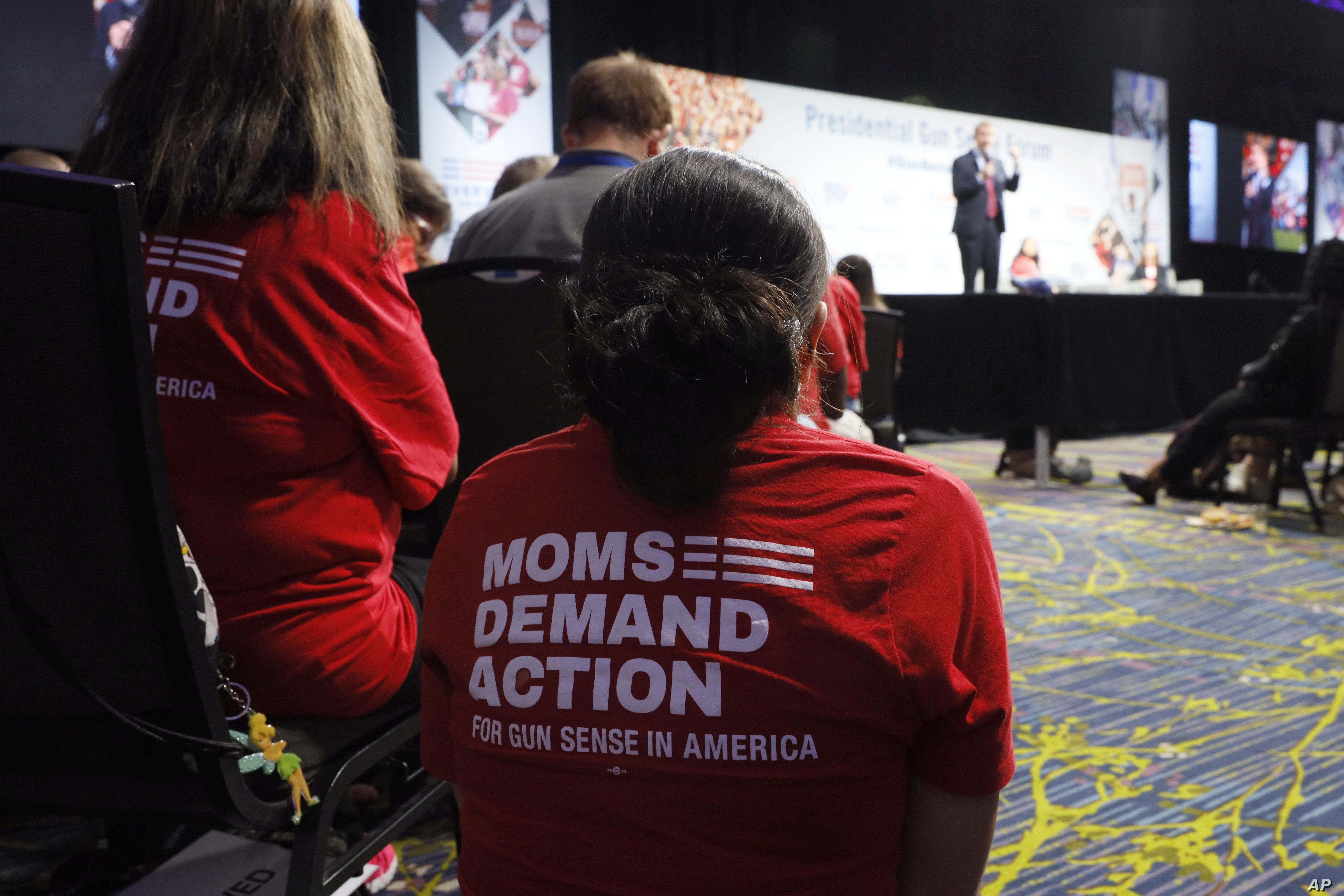
Still, some of Bennet's supporters are skeptical that he can break through. Phyllis Weeks, a 69-year-old Democratic activist, enthusiastically asked Bennet if he needed donations to get into the next debate because "I think you have some really good things to say."
Weeks said she liked that he's a "steady hand" and "has a lot of authority and wisdom," but said she was skeptical of his chances in the primary.
"I don't know that Michael Bennet can win the nomination," she said.
And Simonton, who saw Bennet at the fair and said she likes that he's a "nice kind of mild-mannered guy," also admitted "it's actually my belief" that a more "macho" guy would be more motivating for voters.
"I have to think about who other people would like … like with Steve Bullock, I think, OK, here's a really good-looking, kind of macho, nice guy, all wrapped up in one, that I think a lot of people would find really appealing," she said.
Bennet's heard this kind of thing before. But he doesn't feel compelled to change his style, or his message, to prove them wrong.
"I've heard people say … are you too nice?" he said. "But I think what they're really asking is, 'Are you tough enough for this? And I think I am tough enough for this.'"
 Romney Says Climate Change Happening, Humans ContributeNext PostAs Rivals Head to California, Biden Chooses New Hampshire
Romney Says Climate Change Happening, Humans ContributeNext PostAs Rivals Head to California, Biden Chooses New Hampshire
